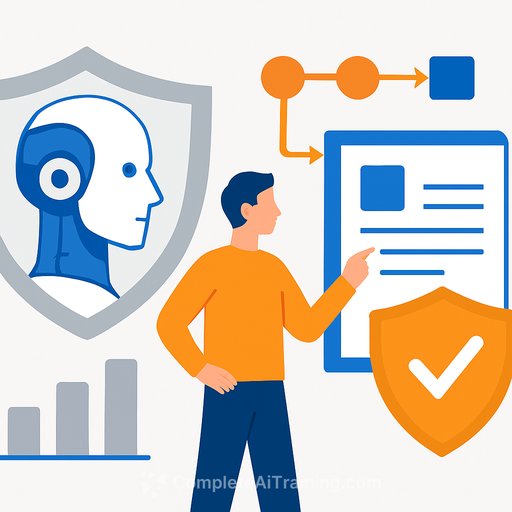Africa's moment to lead in smart and personalised health insurance
At InsurTech Forum Nairobi 2025, one takeaway was unmistakable: Africa's insurance and health sectors are moving from pilots to real outcomes with responsible AI. Claims are approved in minutes. Fraud is flagged before it hits the books. Predictive models keep people healthier, not just covered.
These shifts aren't imported. They run on African data, infrastructure, and regulation. The work now is simple and hard at the same time: connect what already exists and turn it into shared intelligence that customers, providers, and insurers can trust.
From pilots to production: the groundwork is done
A decade of investment in mobile rails, digital-policy systems, and claims automation has created clean, interoperable data. That's why AI is sticking. Routine checks-validation, reconciliation, compliance-are being automated, freeing people for underwriting, service, and product design.
Data that once sat in silos is now analysed in real time. Pricing improves. Fraud drops. Client needs are anticipated instead of discovered too late. Efficiency is becoming intelligence.
Governance gives cover to scale
Confidence comes from clear rules. Kenya's 2019 Data Protection Act gives citizens the right to human review of automated decisions, setting a practical bar for explainability and recourse. The African Union's 2024 AI Strategy puts transparency and accountability on the agenda across member states.
These aren't footnotes. They are the signal that boards and regulators need to scale AI safely and visibly.
Proof points you can measure
Across markets, AI in claims and risk is delivering: lower loss ratios, faster processing, higher satisfaction. In Kenya and Nigeria, processes that took weeks now clear in hours. Teams once buried in manual checks are redeployed to client service and analytics.
These are not isolated cases; they signal a structural shift in how health insurance operates and scales.
From paying for illness to investing in wellness
Connected, secure data-medical, behavioural, and financial-is changing the purpose of health insurance. In Kenya, real-time policy management enables personalised benefits and faster entry into new segments. In Rwanda, antenatal data models flag high-risk pregnancies early for targeted care.
In Uganda, image-analysis tools detect malaria parasites with expert-level precision, boosting rural diagnostics. In South Africa, AI-guided wellness programmes support preventive habits and show early cost savings in chronic-disease management. Similar models are now being adopted from the Gulf to Southeast Asia.
Why executives should lean in now
Every claim becomes a learning event. That feedback loop powers prevention, better care pathways, and pricing stability. The economics are clear: predictive analytics reduce claims costs, stabilise premiums, and release capital for growth.
Profitability and health stop competing. They compound.
What to build next: a practical playbook
- Connect your data plumbing: standardise identifiers, close data gaps, and prioritise interoperability with providers, TPAs, and regulators.
- Pick two high-ROI use cases first: fraud detection and fast-track claims. Prove value in 90 days, then expand.
- Make "explainable by default" the rule: log model decisions, keep a human review path, and publish clear customer notices.
- Stand up a shared-data strategy: join or form consortia to share de-identified risk signals with providers and public programmes.
- Shift incentives to prevention: reward healthy behaviours, early screenings, and adherence for chronic conditions.
- Retrain your workforce: move claims staff into analytics, product, and customer advisory roles.
- Measure what matters: loss ratio delta, TAT improvement, NPS/CES, fraud savings, prevented acute episodes.
Risk controls that build trust
- Bias checks: compare model outcomes across demographics; set thresholds for acceptable variance and remediation steps.
- Data minimisation: collect only what you can explain and protect; keep retention policies tight.
- Incident playbook: have clear escalation, customer comms, and rollback plans for model or data failures.
- Vendor discipline: require audit trails, lineage, and portability in every AI procurement.
Africa's head start
The advantage isn't starting fresh-it's building on working systems. Mobile-first infrastructure, clear regulation, and a culture of partnership create the right conditions for AI-enabled, customer-centred health finance.
The next step is leadership. Treat connected data and responsible AI as core strategy, not side projects. AI won't replace Africa's insurance systems-it will make them smarter, safer, and more useful in real time.
Where to upskill your teams
If you're building internal capability for underwriting, claims, or health analytics, structured training shortens the learning curve. A focused catalogue by role can help you map skills to initiatives.
Explore AI courses by job function
About InsurTech Forum Nairobi 2025
The InsurTech Forum Nairobi (ITFN) is an annual platform bringing together insurance executives, regulators, and technology leaders to advance innovation across Africa's insurance and financial services. The 2025 edition focused on Connected Data and Artificial Intelligence, with participation from across the continent.
Your membership also unlocks:





